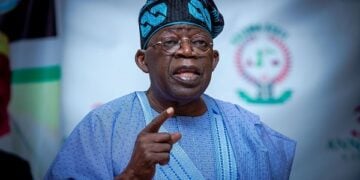United Nations Children’s Fund (UNICEF) has expressed concern over the rate of poverty in the country pointing out that children are affected negatively.
It made the observation during a media dialogue organised for journalists from Gombe, Adamawa and Bauchi states on child poverty at Evolution Hotel, Gombe.
A facilitator at the event, Dr Ali Madina Dankumo, of the Federal University, Kashere, who presented a lecture titled: “The Effects Of Child Poverty On Socioeconomic Development Of Nigeria”, decried that children from poor families have their social and educational development impeded.
He said a UNICEF 2023 report indicated that about 333 million children equivalent to one in six live in extreme poverty globally.
Dankumo said a World Bank 2023 survey shows that no fewer than 40 million children in Nigeria live in poverty.
The university don listed the causes of child poverty to include; unemployment, low wages, rapid population growth, conflict, climate-related disasters, inadequate social safety nets and investments in social protection policy, insufficient access to education and healthcare.
Other factors the facilitator mentioned were family size and structure, systemic inequalities, government policies such as subsidy removal on essential commodities, bad governance which affects heads of households and by extension their children.
Dankumo tasked media men to play some roles in addressing child poverty by creating awareness, and holding government and policymakers accountable.
He also asked the government to implement more social welfare policies with a view to making life better for children.





